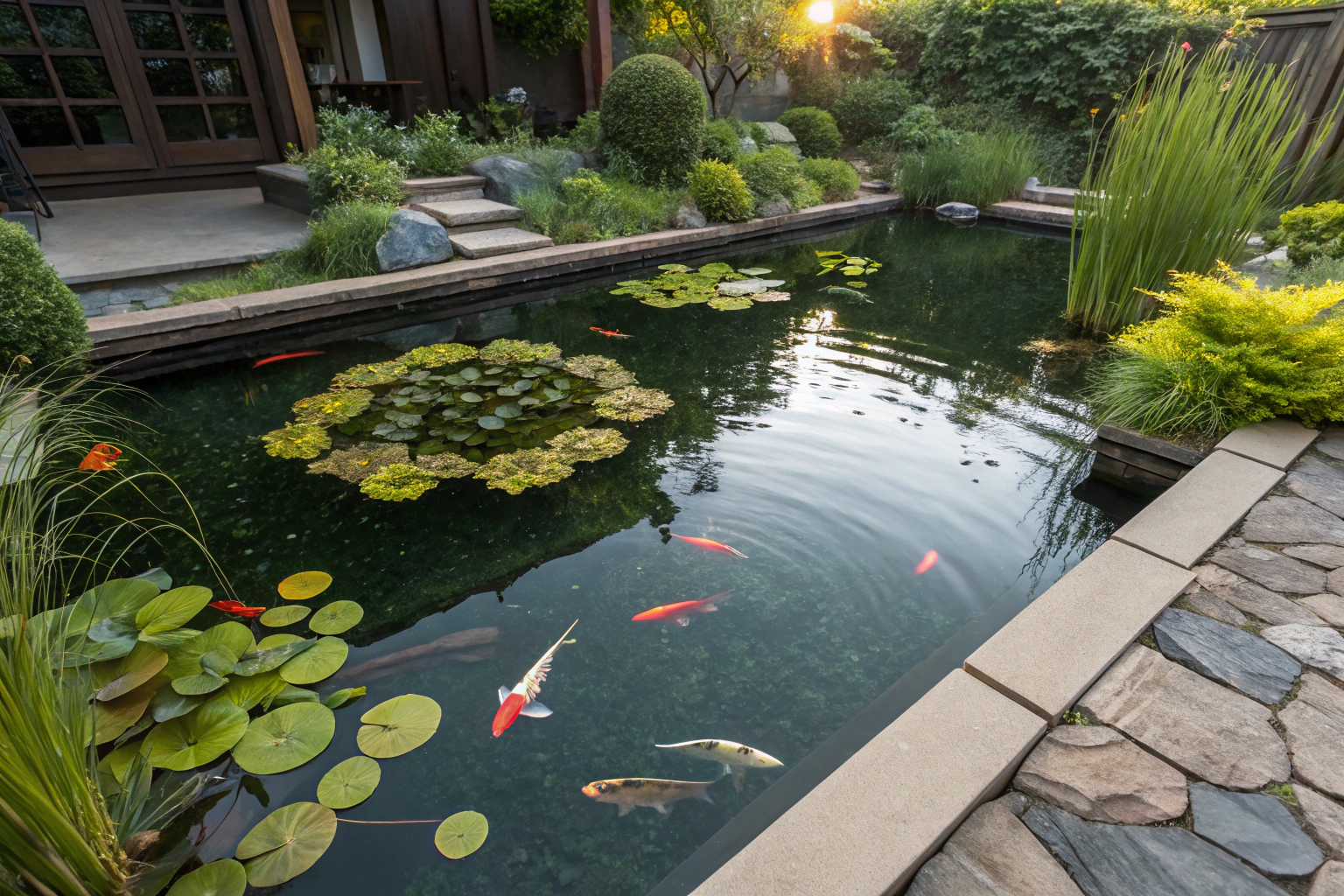Do Koi Fish Eat Algae? Understanding Their Natural Foraging Habits
This post may contain affiliate links.
If you’re a pond owner or aquatic enthusiast, you’ve likely asked: Do koi fish eat algae? The short answer is yes—but the full story reveals how koi interact with algae as part of their natural foraging behavior and how this can affect your pond’s ecosystem.
Koi fish are omnivorous grazers. Their diet includes everything from insects and plant matter to commercial pellets—and yes, algae. But how much algae do they consume? Is it enough to keep your pond clean? Let’s dive into the details.

Do Koi Fish Really Eat Algae?
Yes, koi fish do eat certain types of algae, especially soft, filamentous varieties. They will nibble on string algae, blanket weed, and surface-growing green algae as they forage. However, koi are not algae control specialists like some other aquatic species (such as plecos or snails), so while they help manage algae levels, they won’t eliminate it entirely.
Key algae types koi eat:
- Soft string algae (Cladophora)
- Blanketweed (Spirogyra)
- Green film algae on pond walls and surfaces
➡️ Explore More: What Do Baby Koi Fish Eat? Essential Nutrition for Fry
(Learn how koi feeding habits evolve from fry to adulthood.)

Why Koi Eat Algae: Natural Foraging Behavior
In the wild and in pond environments, koi are natural foragers. They spend much of their time sifting through debris, gravel, and surfaces looking for organic matter to eat. This behavior contributes to:
- Algae consumption
- Stirring up sediment and aerating substrate
- Balancing natural microorganisms
Foraging helps keep them stimulated and engaged, especially when supplemented with a proper diet.
Should You Rely on Koi for Algae Control?
No, koi alone won’t keep your pond algae-free. While they’ll nibble on some algae, their impact is minimal when algae growth is fueled by sunlight, high nutrients, and poor filtration.
To maintain a clean pond:
- Use aquatic plants to compete with algae for nutrients
- Limit direct sunlight with floating plants or shade structures
- Avoid overfeeding your koi
- Install proper biological filtration
➡️ Learn more about balanced koi pond nutrition and management here: Healthy Koi Fish Diet Guide
Do Algae Benefit Koi in Any Way?
Absolutely. A moderate presence of algae in your pond can be beneficial:
- It provides a natural snack between meals
- It offers cover and comfort for koi, especially fry
- It contributes to biological filtration and oxygen production (during the day)
But be cautious: excessive algae, particularly harmful blooms like cyanobacteria, can deplete oxygen at night and pose health risks to koi.

Best Practices: Supporting Natural Foraging Without Overgrowth
To encourage healthy foraging without letting algae overrun your pond:
- Provide a varied, nutritious diet to reduce excessive grazing
- Maintain regular water testing and quality checks
- Include live plants and gravel areas to mimic natural behavior
➡️ Don’t miss this article: Top Koi Feeding Tips for Growth and Color Enhancement
Final Thoughts
Koi fish do eat algae, but not enough to serve as your only pond-cleaning strategy. Their foraging helps reduce algae in a balanced ecosystem, but successful pond management requires more than relying on their diet alone.
For more expert koi care advice, feeding strategies, and pond maintenance tips, visit NutritionMotion – Your Guide to Fish Wellness
